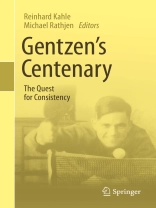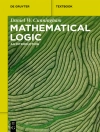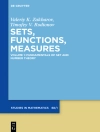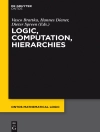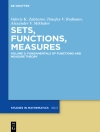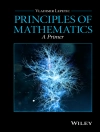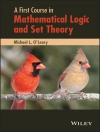Gerhard Gentzen has been described as logic’s lost genius, whom Gödel called a better logician than himself. This work comprises articles by leading proof theorists, attesting to Gentzen’s enduring legacy to mathematical logic and beyond. The contributions range from philosophical reflections and re-evaluations of Gentzen’s original consistency proofs to the most recent developments in proof theory. Gentzen founded modern proof theory. His sequent calculus and natural deduction system beautifully explain the deep symmetries of logic. They underlie modern developments in computer science such as automated theorem proving and type theory.
สารบัญ
Part I Reflections.- Gentzen’s Consistency Proof in Context, Reinhard Kahle.- Gentzen’s Anti-Formalist Views, Michael Detlefsen.- The Use of Trustworthy Principles in a Revised Hilbert’s Program, Anton Setzer.- Part II Gentzen’s Consistency Proofs.- On Gentzen’s First Consistency Proof for Arithmetic, Wilfried Buchholz.- From Hauptsatz to Hilfssatz, Jan von Plato.- A Note on How to Extend Gentzen’s Second Consistency Proof to a Proof of Normalization for First Order Arithmetic, Dag Prawitz.- A Direct Gentzen-Style Consistency Proof for Heyting Arithmetic, Annika Siders.- Gentzen’s Original Consistency Proof and the Bar Theorem, W.W. Tait.- Goodstein’s Theorem Revisited, Michael Rathjen.- Part III Results.- Cut Elimination In Situ, Sam Buss.- Spector’s Proof of the Consistency of Analysis, Fernando Ferreira.- Climbing Mount ε_0, Herman Ruge Jervell.- Semi-Formal Calculi and Their Applications, Wolfram Pohlers.- Part IV Developments.- Proof Theory for Theories of Ordinals III: Π_N-Reflection, Toshiyasu Arai.- A Proof-Theoretic Analysis of Theories for Stratified Inductive Definitions, Gerhard Jäger and Dieter Probst.- Classifying Phase Transition Thresholds for Goodstein Sequences and Hydra Games, Frederik Meskens and Andreas Weiermann.- Non-deterministic Epsilon Substitution Method for PA and ID_1, Grigori Mints.- A Game-Theoretic Computational Interpretation of Proofs in Classical Analysis, Paulo Oliva and Thomas Powell.- Well-Ordering Principles and Bar Induction, Michael Rathjen and Pedro Francisco Valencia Vizcaíno.
เกี่ยวกับผู้แต่ง
